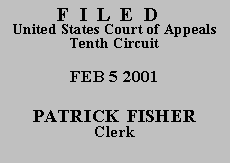

| ISAAC MCBRIDE, |
|
| v. | |
| JOHN GRUBBS, Warden, |
Mr. McBride's sentence became final on July 2, 1998, at which point the one-year period of limitation for filing an application for a writ of habeas corpus began to run. See 28 U.S.C. § 2244(d)(1). The magistrate judge determined that Mr. McBride did not file his application for post-conviction relief in state court until July 15, 1999, thirteen days after his petition for relief was due in federal court. Because Mr. McBride's application for state post-conviction relief was not filed within AEDPA's one-year time limit, the magistrate judge correctly determined that the tolling provisions of § 2244(d)(2) were not implicated. Mr. McBride's federal habeas petition was filed on March 16, 2000, more than eight months after the one-year period had expired.
We agree with the conclusions of the district court. We also note that Mr. McBride's brief, which we construe liberally pursuant to Haines v. Kerner, 404 U.S. 519, 520-21 (1972) (per curiam), suggests no basis for equitable tolling, because he has not demonstrated any extraordinary way in which he has been prevented from asserting his rights. See Miller v. Marr, 141 F.3d 976, 978 (10th Cir. 1998) (suggesting equitable tolling of limitation period when delay is encountered due to circumstances over which inmate had no control and inmate diligently pursues claims).
We have thoroughly reviewed the record on appeal, Mr. McBride's brief, the magistrate judge's report and recommendation, and the district court's order. We deny Mr. McBride's application for a certificate of appealability for substantially the reasons set forth in the magistrate judge's report and recommendation. Accordingly, we DENY his renewed motion to proceed in forma pauperis, DENY his request for a certificate of appealability and DISMISS this appeal.
Entered for the Court,
Robert H. Henry
Circuit Judge
*. This order and judgment is not binding precedent, except under the doctrines of law of the case, res judicata, and collateral estoppel. The court generally disfavors the citation of orders and judgments; nevertheless, an order and judgment may be cited under the terms and conditions of 10th Cir. R. 36.3.
2. After examining the briefs and appellate record, this panel has determined unanimously that oral argument would not materially assist the
determination of this appeal. See Fed. R. App. P. 34(a)(2)(c); 10th Cir. R. 34.1(G). The case is therefore ordered submitted without oral argument.